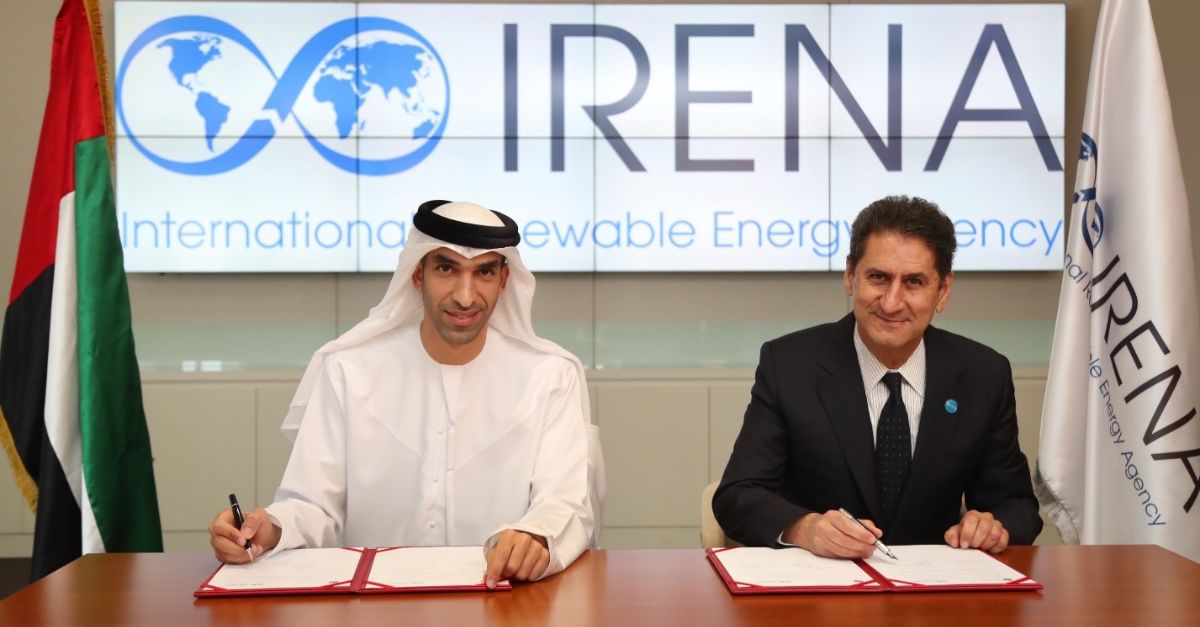UAE and IRENA Collaborate to Enhance Climate Goals in Developing Nations

The partnership was announced at the opening of the 2024 Climate Week held in Abu Dhabi, where officials emphasized the importance of cooperative efforts to enhance renewable energy deployment and transition to sustainable practices in the face of climate change. The UAE's leadership in the renewable energy sector has positioned it as a key player in global climate action, and this initiative is part of its broader strategy to leverage its expertise and resources to assist other nations in reducing their greenhouse gas emissions.
NDCs are crucial for achieving the goals of the Paris Agreement, which aims to limit global warming to well below 2 degrees Celsius above pre-industrial levels. For many developing nations, however, the path to fulfilling these commitments is fraught with challenges, including limited financial resources, technological gaps, and insufficient infrastructure. The UAE and IRENA's collaboration seeks to address these challenges by providing targeted support to enhance the capacity of these nations to implement their climate action plans.
Key elements of this partnership include the provision of technical assistance, knowledge sharing, and access to funding mechanisms to facilitate the transition towards renewable energy sources. The focus will be on countries that are particularly vulnerable to climate impacts and those that have made specific commitments to renewable energy but lack the necessary means to fulfill them. This approach aligns with the UAE's broader vision of promoting sustainable development both locally and globally.
The announcement coincides with a growing recognition of the pivotal role that developing countries play in global climate action. As these nations seek to balance economic growth with environmental sustainability, international support becomes increasingly vital. The partnership also reflects the UAE's strategy to showcase its leadership in the energy sector, particularly in hosting major climate events and engaging in high-level dialogues on sustainability.
IRENA, headquartered in Abu Dhabi, has long been a champion of renewable energy adoption, advocating for policies and practices that accelerate the energy transition worldwide. By joining forces with the UAE, the agency aims to amplify its efforts in supporting developing countries to realize their energy potential while addressing climate risks.
This collaboration is expected to create synergies among multiple stakeholders, including governments, non-governmental organizations, and the private sector. It emphasizes the need for an integrated approach to climate action, where knowledge transfer and innovative financing can lead to tangible results on the ground.
As part of this initiative, the UAE will share its best practices in renewable energy development, including experiences from its own ambitious projects like the Mohammed bin Rashid Al Maktoum Solar Park. This project, one of the largest solar parks in the world, has become a model for sustainable energy initiatives, demonstrating the feasibility and benefits of large-scale renewable energy investments.
The partnership is also expected to leverage the UAE’s substantial investments in green technologies and its burgeoning clean energy sector. With a robust portfolio of renewable projects and a commitment to reducing its carbon footprint, the UAE stands as a testament to the potential of combining economic development with environmental stewardship.
Emerging trends in the global energy landscape highlight an increasing shift towards sustainable practices, with many nations recognizing the urgent need to transition away from fossil fuels. The collaboration between the UAE and IRENA comes at a time when the urgency of climate action is paramount, further underscoring the importance of international cooperation in achieving climate goals.
The alliance aims to support innovative solutions to the challenges faced by developing countries, including enhancing energy efficiency, promoting solar and wind energy projects, and encouraging sustainable practices across various sectors. By fostering local capacities and enabling knowledge sharing, the partnership seeks to empower nations to devise their tailored strategies for climate resilience.
This initiative aligns with the UAE's broader diplomatic efforts to position itself as a leader in the fight against climate change. The country has hosted numerous international forums and conferences aimed at galvanizing global action, and its commitment to this partnership reflects a deeper understanding of the interconnectedness of climate challenges and the need for collaborative solutions.
Experts highlight that such partnerships are essential not only for meeting the global climate goals but also for ensuring energy security and economic stability in developing regions. With ongoing geopolitical tensions and fluctuating energy prices, diversifying energy sources and increasing reliance on renewables will play a crucial role in enhancing resilience against future crises.

Join the conversation